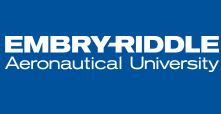
Volume
30
Issue
2
Key words
Design Science Research, design science, aviation training, training development, instructional design, research methods
Abstract
Relevance is a permanent requirement of academic research, which means it is worth discussing methods and paradigms that provide the most useful outcomes to the most relevant problems, while maintaining rigor and criteria at a high level. The class of problems associated with aviation [pilot] training-related studies demands pragmatic solutions that are not always conspicuous from traditional qualitative or quantitative methods akin to the natural sciences. Hence, an interface between the natural and the artificial is required. The purpose of this theoretical essay is to review design science research (DSR) methodology, considering its applicability to aviation [pilot] training problems, thus, providing insight that will eventually help education practitioners in the field of aviation instructional design. To this end, DSR is analyzed in four distinct dimensions – concept, processes, outcomes, and evaluation – with reference to the seminal papers in information systems (IS) literature. DSR presents itself and is further discussed as a method that possesses the characteristics to build relevant solutions to prominent aviation training problems. DSR is supported by a systematic process that is rigorous and flexible at the same time. Its potential outputs/outcomes suit different classes of problems and are receptive to a significant number of different evaluation methods, all of which works to satisfy design science knowledge criteria demanded by academia.
Scholarly Commons Citation
da Silveira, G. A.,
& Henriqson, É.
(2021).
Design Science Research – Alternative Pathway for Aviation Training-Related Studies.
Journal of Aviation/Aerospace Education & Research, 30(2).
DOI: https://doi.org/10.15394/jaaer.2021.1902
Included in
Adult and Continuing Education Commons, Curriculum and Instruction Commons, Educational Assessment, Evaluation, and Research Commons, Educational Methods Commons, Educational Technology Commons

